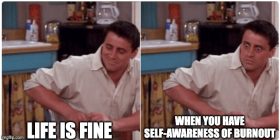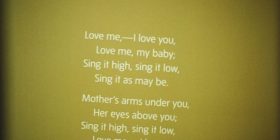I interviewed Fai, a writer and counsellor in Thailand who did a thesis about how expressive writing works well in collective culture countries.
1. Please tell me about your background, education, and career.
My name is Kantaporn Suensilpong (Fai). I’m a writer interested in writing therapy and am also the co-founder of MasterPeace Counselling and Mental Health Services.
I studied communication arts for my bachelor’s degree, majoring in journalism. Having worked on a magazine editorial team for 5 years, I have listened to many kinds of people, from the ordinary to the celebrity, and I have found that I am interested in how people get through life, how they understand life, make it through obstacles, and finally grow. Plus, I have my own mission to deal with my own distress and anxiety. Writing is that thing that helps me get out of difficult situations when my mind is down. So when I quit my beloved job, I chose to study in a field that could lead me to use writing therapy professionally. The answer is a master’s degree in counselling. I’m also doing research about psychological experience in expressive writing and hope I can be a part of sharing wisdom in expressive writing, which has saved my life many times before. (I have my own books as a writer called ‘Magic Moment’ and ‘Dawn’; the content in these 2 books comes from my diary and records the cherishing and transformation moments at ages 25 and 30.)
2. Your thesis was about expressive writing. Can you tell me about it? What did you do, and what did you find out from this?
I did a literature review and found that expressive writing works well in collective culture countries (including Asian countries and Thailand), which do not support people’s own ‘true voice’ ‘true feeling’ ‘true opinion’. Culture affects people’s mental health, and collective culture pushes us to suppress negative feelings. We usually ‘เกรงใจ’ (=consideration for other people’s feelings) which means concern about others’ feelings and thus keep our own needs or own words secretly; we don’t want to bother other people. This fact inspires me so much. So I do qualitative research to listen to the expressive writing experiences of Thai people who have done expressive writing before. I am interested in what issues inspire them to start writing for healing, when and where they want to write to help themselves, how the writing and healing process is going, and what results come from writing. The result confirms that we need the space to ventilate ‘ mind clutter’, including thoughts and feelings, no matter how hurtful they are. Writing helps participants better understand situations and themselves, especially when working with traumatic experiences. They grow up intellectually and spiritually from the struggles they meet. And thanks to writing that literally ‘ save their lives’ in a few participants.
3. After listening to my project and my intervention, what is your advice?
We should focus on helping people in the creative industry realise and be aware of their mental and burnout stages. Not to focus on fixing all burnout. Burnout can happen for many reasons: work, private life, social stress, etc.; not all factors can be fixed. Some of them are uncontrollable. The best choice for this project is to help them check in and know themselves better so they will know their needs, how they want to assist themselves in the hard times, and their goals and values. Helping them know and plan for themselves through writing is what I try to say.
People with burnout are already exhausted; the writing should have some guidelines and the right questions to help them go in the right direction, not just wandering around how much they feel tired and burnt out. Writing questions or guidelines you will give them should be based on burnout research. But firstly, I think it can be separated into 4 parts: 1) Factors that affect burnout 2) What’s going on when they face burnout? How can they know more and notice that burnout is coming or happening? 3) Their goals and values 4) what they plan to do next (tell the manager about workflow, have a day off, find a healthy hobby, make gratitude lists, etc.) so they can explore solutions they have at hand or solutions they haven’t tried.
After they write, you might hold a meeting to have them reflect on what and how they write and what happens when they write. This process is called the ‘feedback loop’. It helps writers explore their writing better and ask about burnout awareness. The only concern is that you have to take care of group dynamics to hold a meeting. (Or have someone help you run the group process.)
4. What do you think about expressive writing being one of the self-awareness tools for individuals in Thailand’s creative industries?
I think it’s a match. Because expressive writing is considered one of the expressive arts, If you don’t write to heal, you can just write to enjoy and catch up with your imagination and ideas, or you might start a new creative project while writing. Writing brings you a flow of creativity, and creative people usually use writing to plan their projects. Writing can be a good partner for someone in their everyday life. That’s why I say it’s a match.
Next, in my opinion, creative people in the creative industry have to carry their good ‘image’ to the public. Writing privately to introspect themselves and see their authentic selves without feeling embarrassed may be a good choice to try. Writing may be a secret healing tool we can provide for ourselves at home than going to a one-on-one therapy session or participating in on-site group therapy.
5. From your point of view, is the environment necessary for expressive writing?
Yes! All of my participants talked about their writing support environment. The environment should provide privacy (both space privacy and time privacy). But privacy for each person may be subjective. One of my participants likes to write in her favourite corner at her favourite cafe. She can write in this area because this corner is quite away from other tables, and this cafe has been her safe space for many years. While other participants said they usually do writing at night, before bed, to reflect on how their day has been going, What’s the issue to reflect on? So I think the environment has meaning for people’s writing. We cannot open ourselves freely if we don’t feel safe enough.
6. If people do not adopt this expressive writing tool, why would that be? In your view?
- First, I don’t think everybody has to love to write. Writing is one of the tools we have to try to fit in. I love writing therapy because I love to write. Writing is my channel to process information and ground myself. But no one size fits all. We should not push everybody to use it, but we can suggest they give it a try.
- Writing is seen as a ‘hard thing’ to do. We have to be writers to do good writing. However writing therapy is not the case. We have to reassure ourselves that good writing skills are not needed.
- Laziness. I also face this issue! Writing therapy, or expressive writing, is better when we write regularly. (Not wanting to write daily is okay, but when you need extra self-care or support, writing to check in with yourself regularly is unquestionably better for taking care of yourself.) But when you have a tough and tiring day, it’s understandable if you want to lay down and passively just scroll through your feeds on your phone. If it’s not laziness that causes people not to write, it may be a not-so-good habit that keeps us doing the same thing: not needing extra energy to do other things we perceive as ‘productive’.
- Some may not want to face the issue alone in a private writing session, which is fine. They might fit in with other kinds of therapy with a therapist in the session and help them explore.










